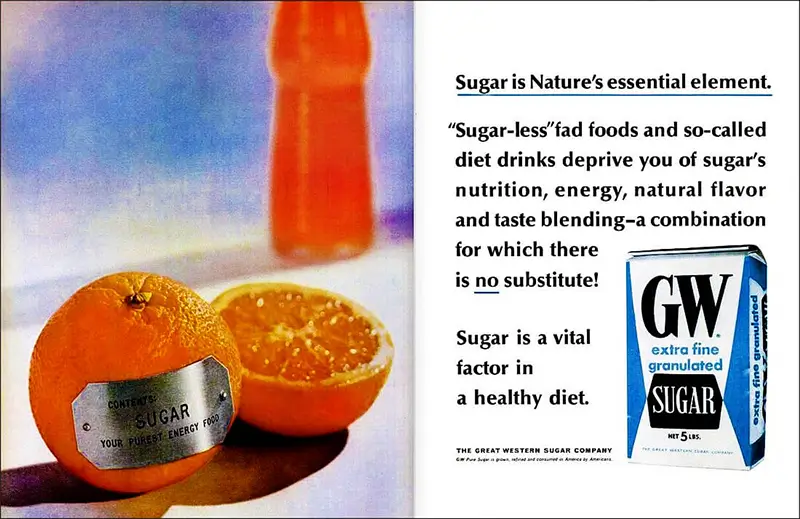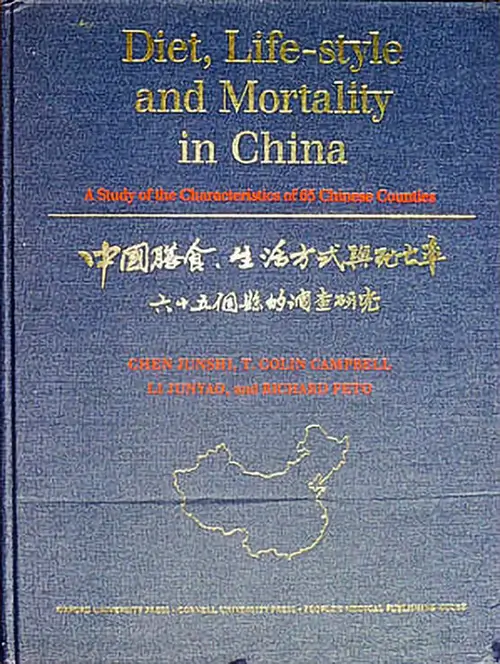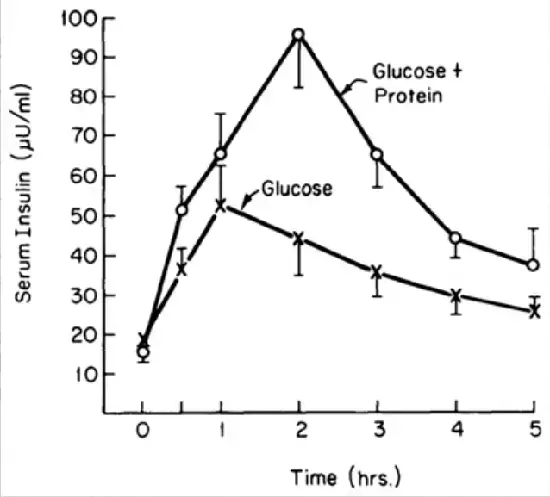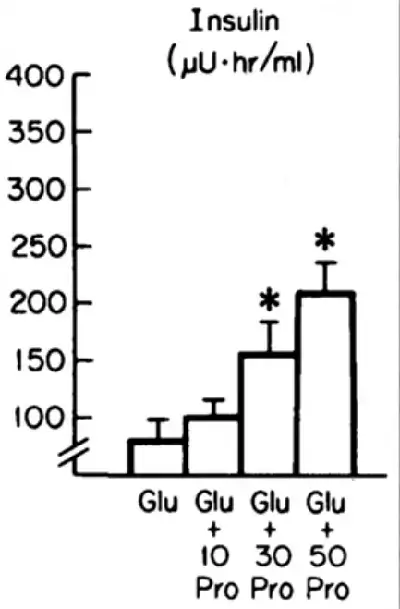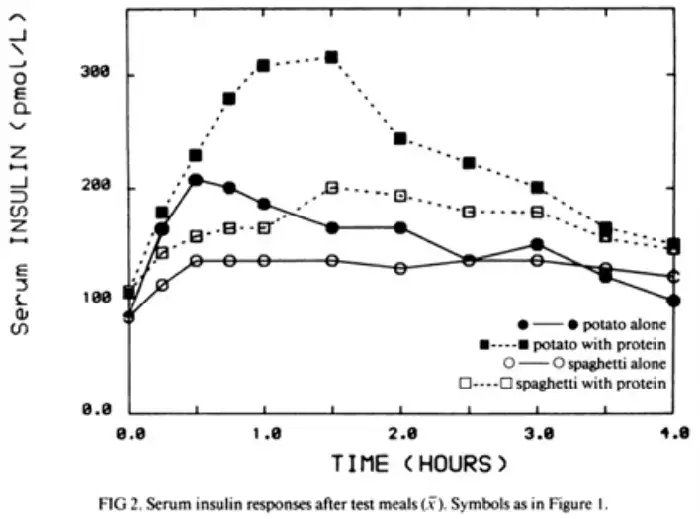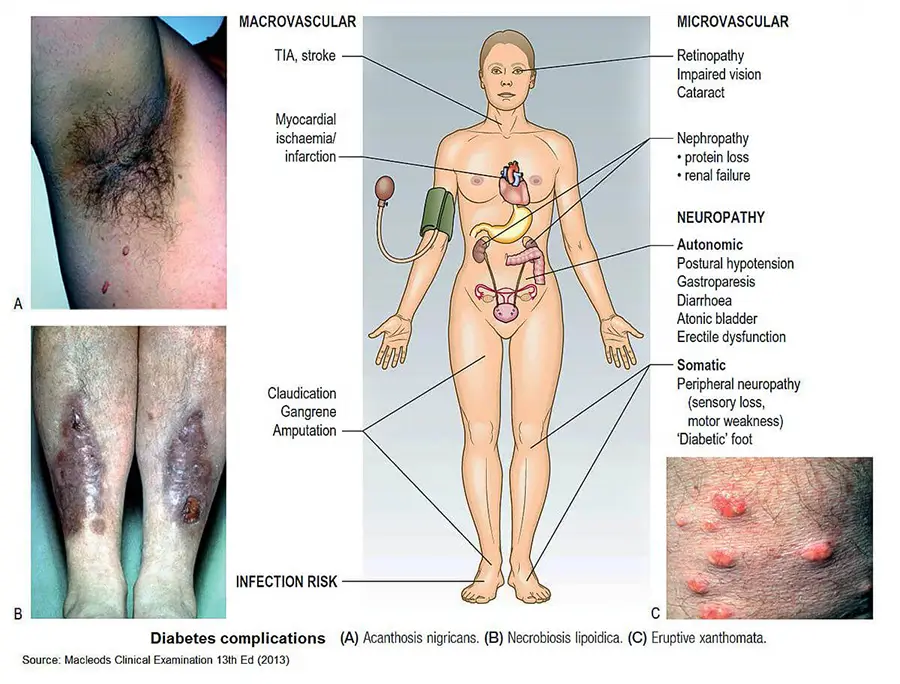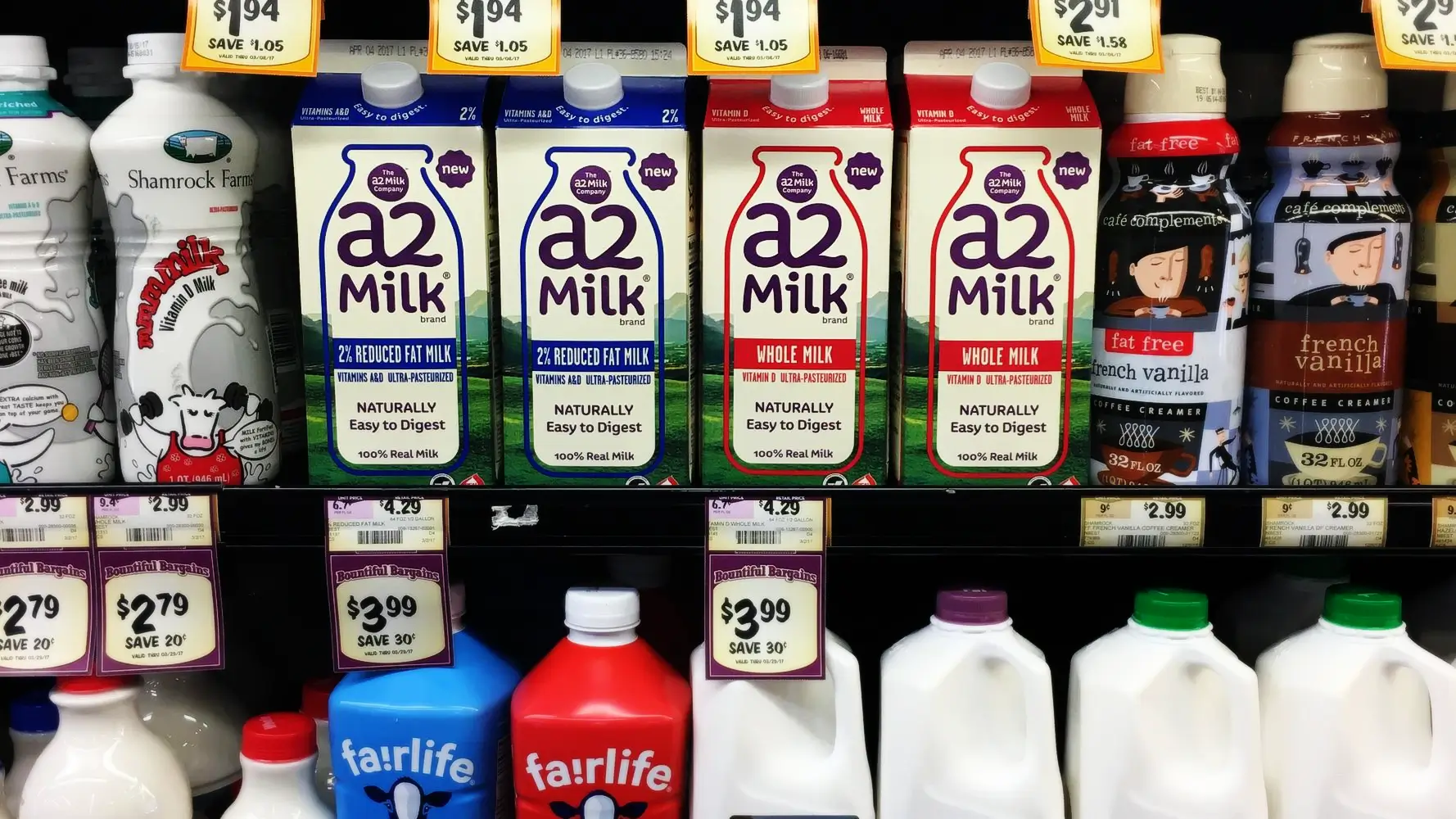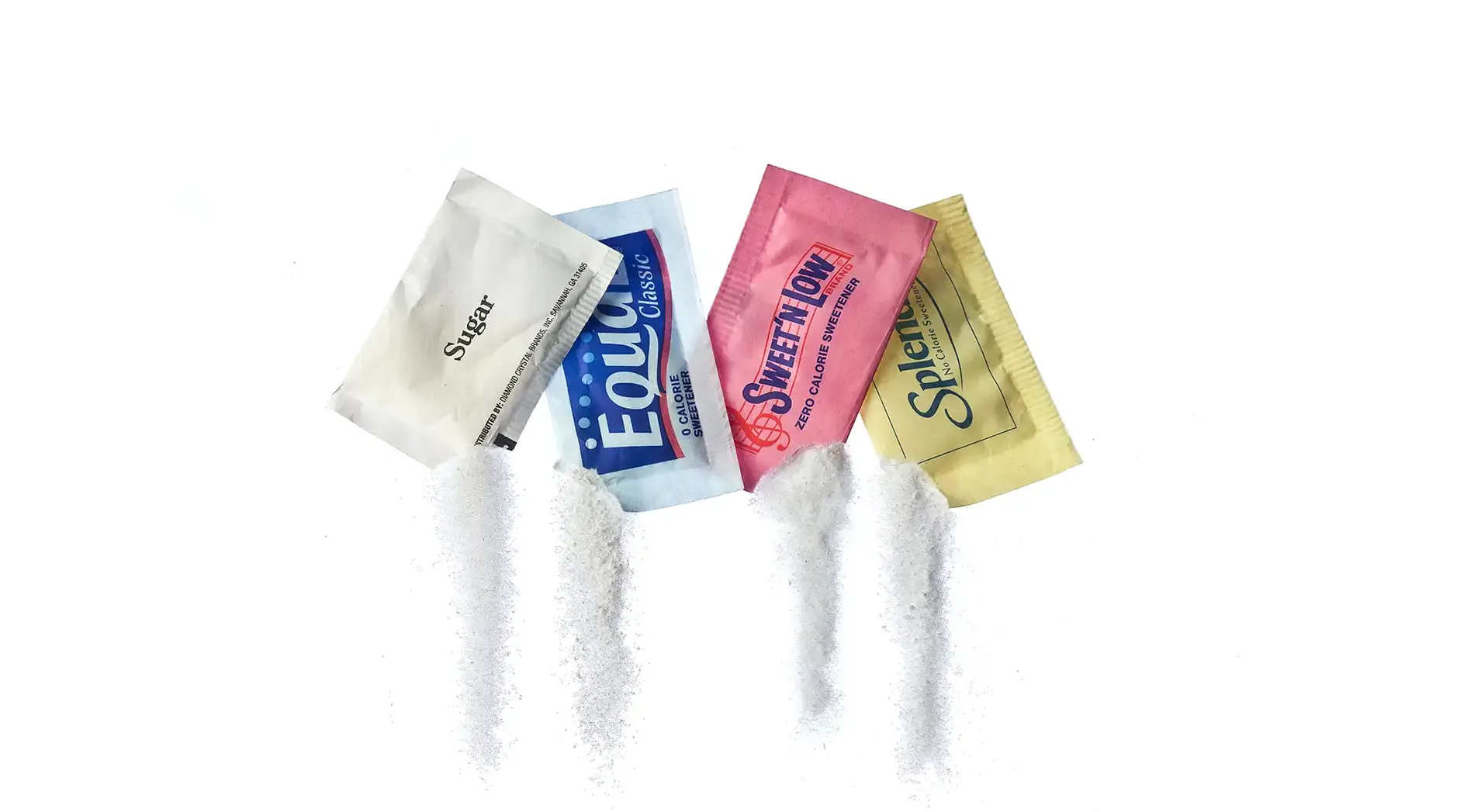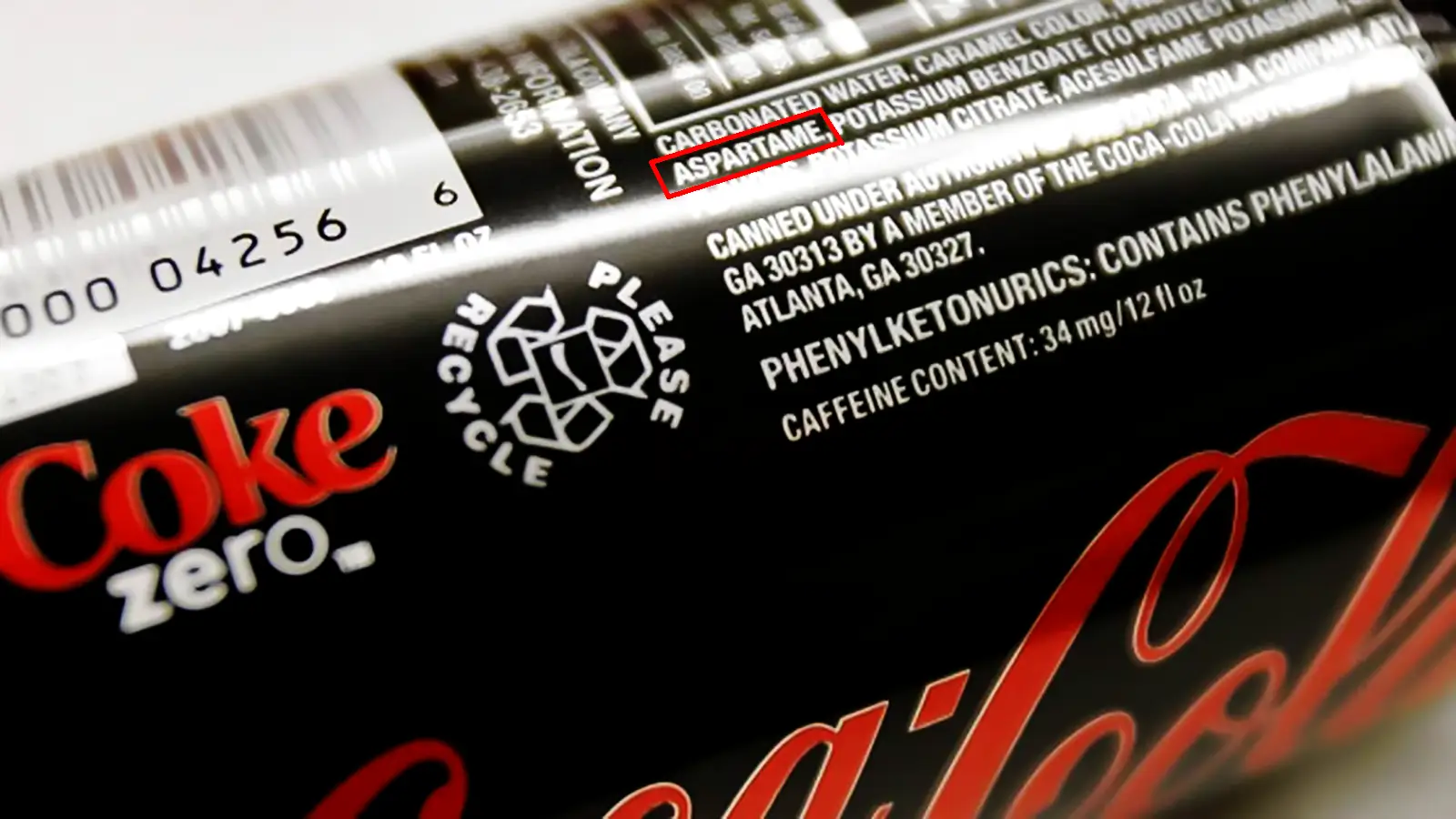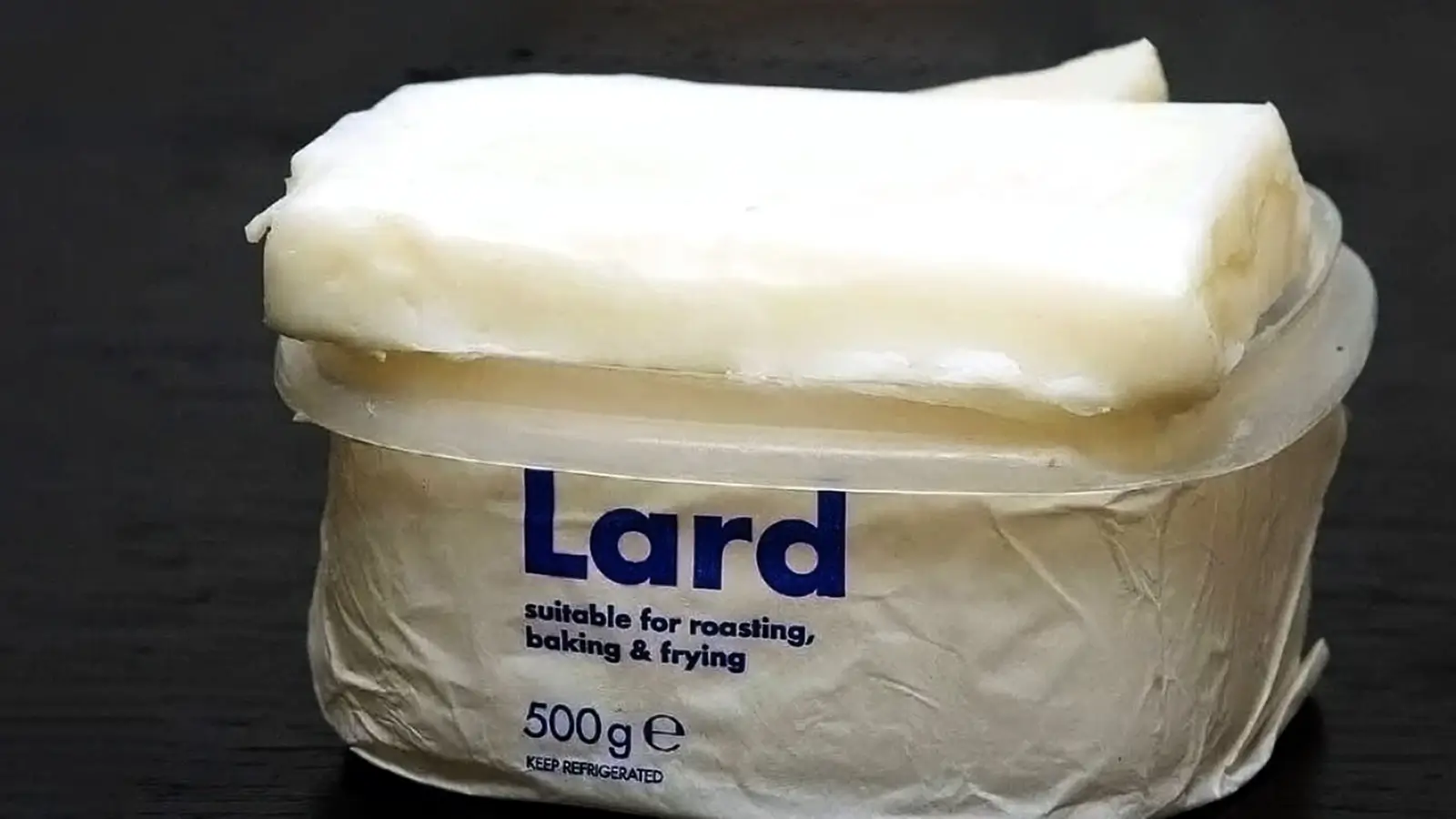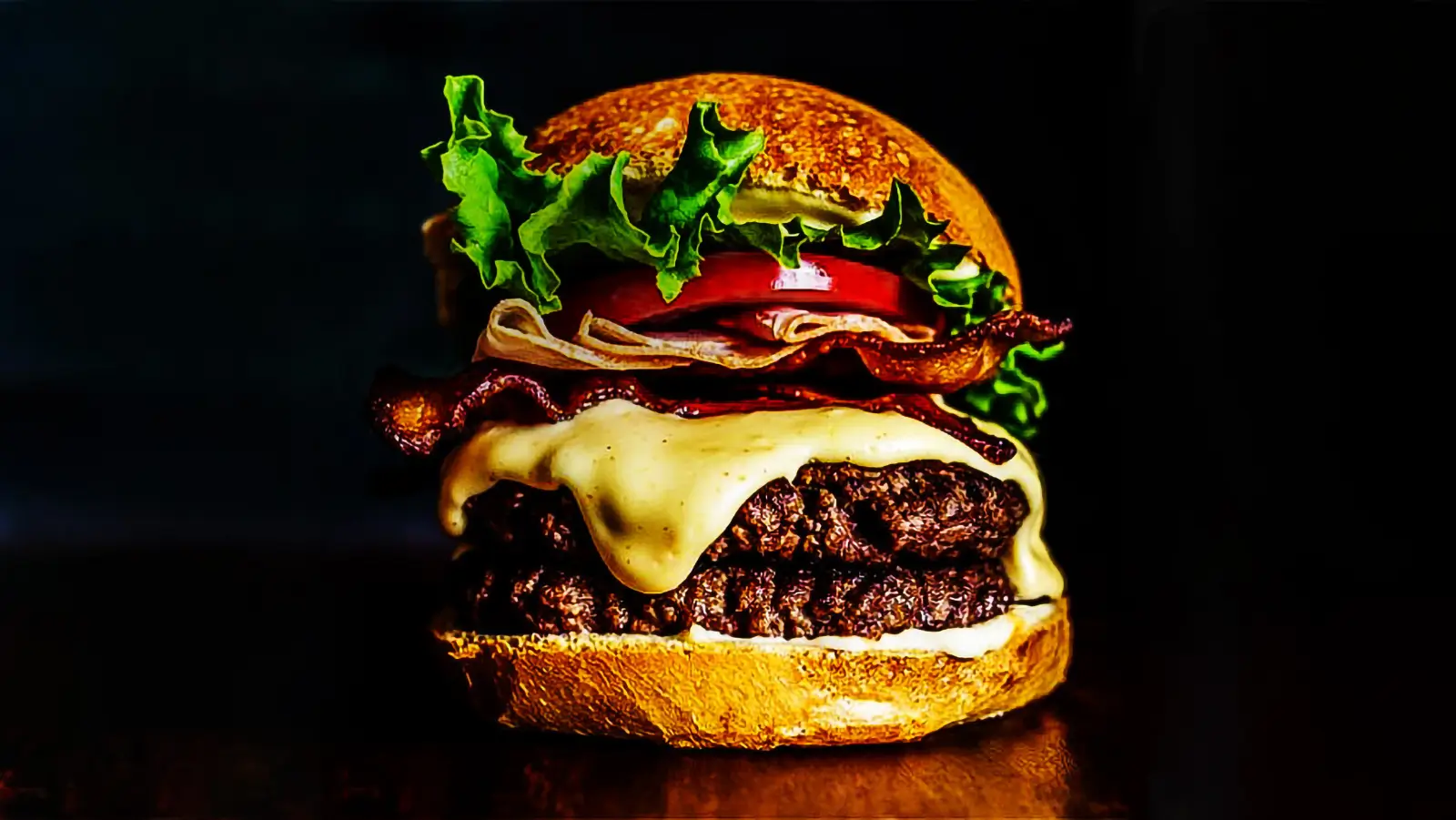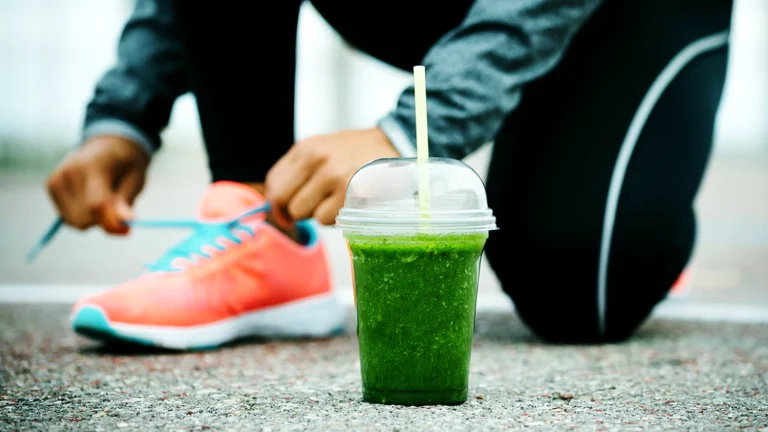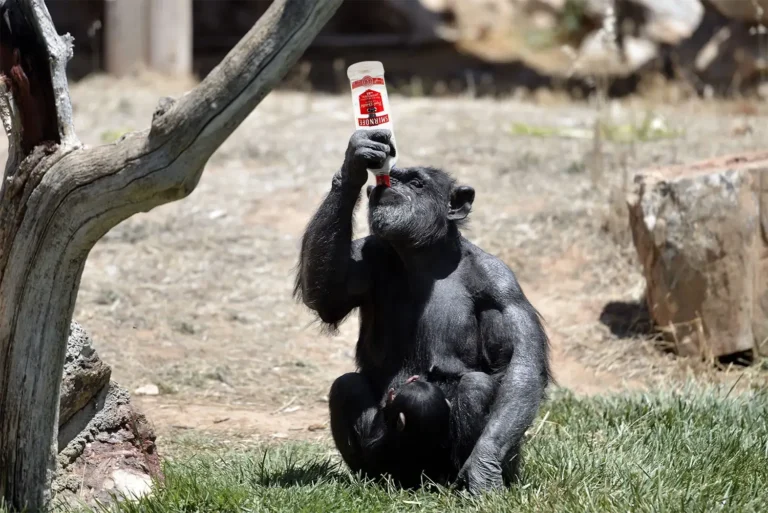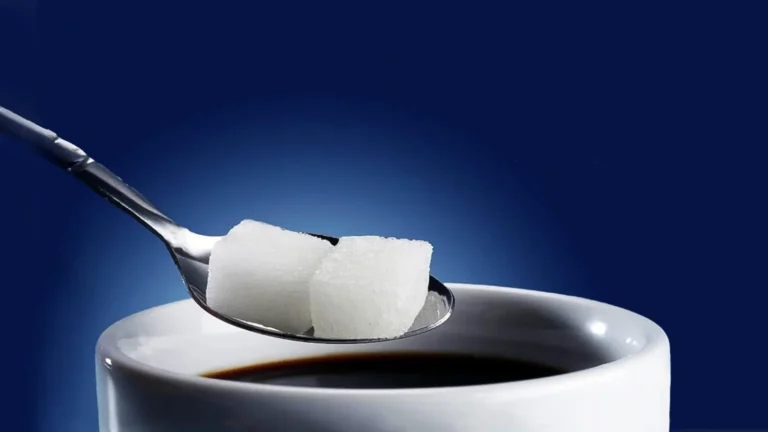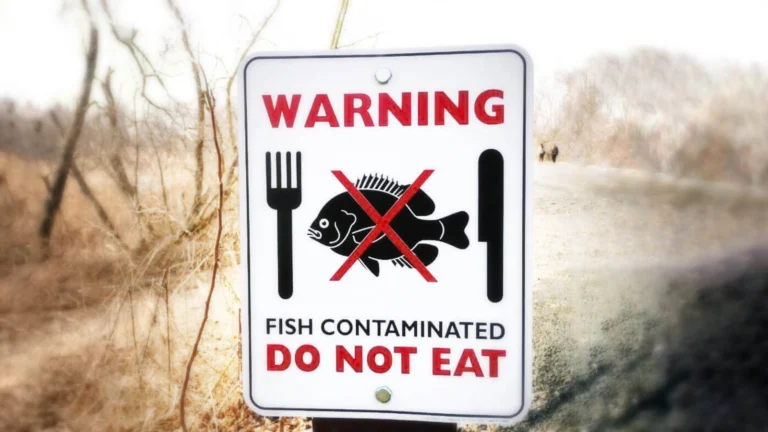Diabetes causes and refined carbohydrates- The vegan argument
People believe that refined carbohydrates are associated with insulin spikes and are one of the diabetes causes. They are right. However, they are also wrong.
Milos Pokimica
Written By: Milos Pokimica
Medically Reviewed by: Dr. Xiùying Wáng, M.D.
Updated June 9, 2023Most people have a belief that refined carbs like white rice are terrible and that refined carbohydrates are associated with insulin spikes and are one of the diabetes causes. They are right.
However, they are wrong at the same time. We will have to look at the entire picture of refined carbohydrates and diabetes.
When rice or grain is refined, the bran is removed. Consumers like nice and soft bread or rice without fiber that can stick between our teeth and taste bad. However, because fiber slows down digestion and absorbs water the carbs in rice without it gets absorbed more rapidly and create an unnatural insulin spike causing an unnatural reaction in our body which by compensation adapts by downregulation of insulin receptors. That is causing insulin resistance and is one of many factors that people with diabetes have to cut out of their diet.
Another factor is intercellular fat which blocks insulin receptor signaling. So refined carbs and sugars cause fast digestion of large and unnatural quantities of calories. Because we have absorption of sugar at a fast rate, we do not burn all of the calories because there are too many in the bloodstream, and some will end up stored as fat. What is worse, as soon as digestion is over, and all the sugars are out of the blood we will start to feel hungry again. Thus lack of fiber is correlated with constant binge eating which then causes obesity and insulin receptors downregulation. Then obesity independently causes all the bad stuff I already wrote about before, and the loop is finished. One small intervention like I do not like sticking bran in my teeth can cause a cascade of effects. A big chunk of the medical community finds that carbs are the cause of all evil and all diseases that we have today. This is the basis of reasoning for diets like the Paleo and Atkins diet. There is no bad logic here. So far.
The industry can sell protein powders and supplements and all the meat they can, especially if the meat is lean. Good old chicken breast and maybe some with healthy fats like tuna. Many people with diabetes that start to adopt this kind of diet may worsen their condition. For example, the modern diabetes epidemic in China and Japan has been linked to white rice consumption which is another half-truth. Consequently, that is why The China Study irritates people.
Rice currently feeds almost half of the world population but how can we settle much lower diabetes rates than just a few decades ago when they ate even more rice? In this study for example (Hu et al., 2012) higher consumption of white rice was correlated with a significantly heightened chance of type 2 diabetes, particularly in Asian (Chinese and Japanese) populations. Also, this is not a small study, with 352,384 participants with follow-up periods ranging from 4 to 22 years. If we analyze this statistically by total population numbers, the dose-response meta-analysis showed that for every meal per day addition of white rice intake, the relative risk of type 2 diabetes was 1.11 meaning an 11% increase in risk. Today China has the same diabetes rate of around 10% as the US which has around 11% despite the seven times less obesity. White rice does not appear to be correlated with obesity and heart attacks and strokes, just diabetes.
However, again if we look at The China Study rural plant-based diets centered around rice were associated with a low risk of diabetes and cancer, and heart disease. This 10% of diabetes prevalence just happened. In the year 2000, China had one of the lowest diabetes rates in the world. This is a dramatic shift that happened in just 20 years.
So what happened?
Well, the same thing happens in every country when the standard of living goes up. Meat consumption went up by an astonishing 40 percent, and rice consumption went down by 30 percent. And now we have a problem. If meat consumption goes up, rice consumption goes down, and diabetes risk goes up, and at the same time, rice consumption independently is correlated with diabetes risk, what is going on? Is it just rice?
Should we eat a more paleo type of diet and cut all the rice? That is what they tell us. Refined carbohydrates are correlated with diabetes and obesity. The answer is simple. What happens is that animal protein is making the rice much worse. This is one study you should go and read (Gulliford et al., 1989). The date of publication was Oct 1989.
Real “new” medical breakthrough. Six noninsulin-dependent diabetic subjects had received meals containing 25 g carbohydrates either as potato or as spaghetti. That is the same meal as white rice. Pure white flour pasta and starch-rich low fiber potato. Then insulin response was measured, and the meals were duplicated including the bonus of 25 g of protein and another one including 25 g of fat. The level of sugar in the blood and insulin responses were measured for 4h after the test meal. The addition of protein increased insulin responses dramatically. This is a “cutting-edge” science to give someone sugar and protein and measure the insulin response.
So there it is. The answer. It is the holy grail of nutrition.
The Protein.
If we look at the chart, we would see that the addition of protein makes potatoes exactly two times worse. From 150 to 300.
We can do it with sugar water too. From 50 to 100. The more meat we add, the worse it gets. When we get to 50 g of protein, we will elicit a surge of insulin that is seriously unnatural and disease-causing. Animal protein significantly potentiates insulin secretion triggered by carbohydrate ingestion. And all along we had been told that diabetes causes are white rice and white flour and sugar. And that is correct partially. The real truth is more complicated. Diabetes causes prime factor is maladaptation to our new diet.
Fiber will lower insulin response like whole wheat pasta but not at the level of 100 percent. Adding meat to any starch is problematic. This combination is unnatural. It is much worse, almost two times worse for insulin response to eat roasted chicken breast with whole wheat bread than the same portion of regular white flour-like Pomodoro pasta with or without oil.
Think about it this way. Does any other animal have regular lunch that consists of different food items?
Carnivores eat only meat. Plant eaters eat only plants. What about omnivores? Do we think that bear is going to catch a fish and then don’t eat it for some period until there is lunchtime so that he can bring that fish to the beehive in order to have dessert afterward?
Even combining different food items at the same meal is 100% unnatural and a modern human invention. And this surge of insulin is maladaptation.
I would ask this. Can we eat just meat without bread? Would we enjoy greasy sausages just by themselves? Would we enjoy just meat from burgers without the buns? It is a mixture of fat and carbohydrates (sugar) that abnormally triggers dopamine signaling in our brains and many other things like in this case abnormal insulin reaction. Combining this with low fiber intake is a recipe for disaster. Combining different food items is not a natural form of eating, but it is pleasurable so we will have to deal with it in the best way we can.
Type 2 diabetes is treatable to some extent. It is actually pretty simple. If we count out the exercise and losing weight number one would be no animal protein. Number two would be fiber. Meaning a lot of it in every meal. If you have to eat meat and have no other choice, then go ahead and eat meat. Just meat. No bread, rice, or any sugar with it. Sugar means regular sugar or fructose or carbs in any form. No salads no nothing. Maybe some cheese. No milk. Milk has sugar or lactose in it.
If you have to eat a combination of sugars and proteins, then it would be a good idea to add some psyllium husk or regular wheat bran and eat spoons of it after a meal. That will slow down digestion to some degree. Psyllium husk has no calories; it is 100 percent fiber. We can use it for diets if we want to bulk up meals in the stomach to give us more saturation but it tastes like cardboard that is liquid.
Number three would be resistant starch meaning beans. If we eat sausages with lots of bread and lots of alcohol we are probably done deal if we have diabetes in the family. When we see the numbers that 1 in 10 people have diabetes, it is an understatement. The actual number is 1 in 3 people in developed countries; just they might not know it because they do not have visible symptoms and insulin resistance is in the range that is known as pre-diabetes. Pre-diabetes is a disease just by itself and would also cause in the long run some adverse effects. It escalates to full-blown diabetes in 1 in 10 cases. CDC estimates that these numbers will still grow primarily on a global scale as the industrialization of the undeveloped regions of the world is taking place. If you have pre-diabetes, the long-term damage, especially to your heart, blood vessels, and kidneys, may already be starting.
References:
- Hu, E. A., Pan, A., Malik, V., & Sun, Q. (2012). White rice consumption and risk of type 2 diabetes: meta-analysis and systematic review. BMJ (Clinical research ed.), 344, e1454. https://doi.org/10.1136/bmj.e1454
- Gulliford, M. C., Bicknell, E. J., & Scarpello, J. H. (1989). Differential effect of protein and fat ingestion on blood glucose responses to high- and low-glycemic-index carbohydrates in noninsulin-dependent diabetic subjects. The American journal of clinical nutrition, 50(4), 773–777. https://doi.org/10.1093/ajcn/50.4.773
Related Posts
Do you have any questions about nutrition and health?
I would love to hear from you and answer them in my next post. I appreciate your input and opinion and I look forward to hearing from you soon. I also invite you to follow us on Facebook, Instagram, and Pinterest for more diet, nutrition, and health content. You can leave a comment there and connect with other health enthusiasts, share your tips and experiences, and get support and encouragement from our team and community.
I hope that this post was informative and enjoyable for you and that you are prepared to apply the insights you learned. If you found this post helpful, please share it with your friends and family who might also benefit from it. You never know who might need some guidance and support on their health journey.
– You Might Also Like –

Learn About Nutrition
Milos Pokimica is a doctor of natural medicine, clinical nutritionist, medical health and nutrition writer, and nutritional science advisor. Author of the book series Go Vegan? Review of Science, he also operates the natural health website GoVeganWay.com
Medical Disclaimer
GoVeganWay.com brings you reviews of the latest nutrition and health-related research. The information provided represents the personal opinion of the author and is not intended nor implied to be a substitute for professional medical advice, diagnosis, or treatment. The information provided is for informational purposes only and is not intended to serve as a substitute for the consultation, diagnosis, and/or medical treatment of a qualified physician or healthcare provider.NEVER DISREGARD PROFESSIONAL MEDICAL ADVICE OR DELAY SEEKING MEDICAL TREATMENT BECAUSE OF SOMETHING YOU HAVE READ ON OR ACCESSED THROUGH GoVeganWay.com
NEVER APPLY ANY LIFESTYLE CHANGES OR ANY CHANGES AT ALL AS A CONSEQUENCE OF SOMETHING YOU HAVE READ IN GoVeganWay.com BEFORE CONSULTING LICENCED MEDICAL PRACTITIONER.
In the event of a medical emergency, call a doctor or 911 immediately. GoVeganWay.com does not recommend or endorse any specific groups, organizations, tests, physicians, products, procedures, opinions, or other information that may be mentioned inside.
Editor Picks –
Milos Pokimica is a health and nutrition writer and nutritional science advisor. Author of the book series Go Vegan? Review of Science, he also operates the natural health website GoVeganWay.com
Latest Articles –
Top Health News — ScienceDaily
- Popular brain supplement linked to shorter lifespan in menon February 26, 2026
A massive study of more than 270,000 people has uncovered a surprising link between a common amino acid and how long men live. Researchers found that higher levels of tyrosine—an amino acid found in protein-rich foods and often marketed as a focus-boosting supplement—were associated with shorter life expectancy in men, potentially trimming nearly a year off lifespan.
- Hidden architecture inside cellular droplets opens new targets for cancer and ALSon February 26, 2026
Biomolecular condensates were long believed to be simple liquid blobs inside cells. Researchers have now uncovered that some are actually supported by fine protein filaments forming an internal scaffold. When this structure is disrupted, cells fail to grow and divide properly. The discovery suggests scientists may one day design drugs that target condensate architecture to fight cancer and neurodegenerative disease.
- The more you fear aging, the faster your body may ageon February 26, 2026
Worrying about getting older—especially fearing future health problems—may actually speed up aging at the cellular level, according to new research from NYU. In a study of more than 700 women, those who felt more anxious about aging showed signs of faster biological aging in their blood, measured using cutting-edge “epigenetic clocks.” Fears about declining health had the strongest link, while concerns about beauty or fertility didn’t appear to have the same biological impact.
- Popular acid reflux medication linked to anemia and bone losson February 26, 2026
Popular acid reflux drugs such as Prilosec, Nexium, and Protonix may carry hidden risks when taken long term. A new study found that extended use disrupted iron and calcium levels in rats, changes associated with anemia and osteoporosis risk. Researchers also observed shifts in mineral balance across multiple organs. Experts say the medications are effective, but prolonged use without medical guidance could have unintended consequences.
- Study finds vegetarians over 80 less likely to reach 100on February 26, 2026
Avoiding meat might slightly lower the odds of reaching 100 — but only for frail, underweight seniors. In very old age, staying strong and maintaining muscle matters more than long-term disease prevention. Older adults who included fish, eggs, or dairy were just as likely to become centenarians as meat eaters, suggesting that key nutrients may make the difference. The takeaway: nutrition needs change dramatically with age.
- Shingles vaccine may slow biological aging and reduce inflammationon February 26, 2026
A shingles shot might do more than prevent a painful rash — it could actually help slow down the aging process. In a large national study of more than 3,800 Americans age 70 and older, those who received the shingles vaccine showed slower biological aging compared to those who didn’t. Researchers found lower levels of chronic inflammation and slower changes in gene activity linked to aging, suggesting the vaccine may calm the body’s “inflammaging” — the low-grade inflammation tied […]
- Massive review suggests exercise may do little for osteoarthritis painon February 26, 2026
A sweeping new analysis of the evidence suggests that exercise therapy — long promoted as a first-line treatment for osteoarthritis — may offer only small and short-lived relief, and in some cases might be no better than doing nothing at all. After reviewing dozens of clinical trials involving more than 13,000 participants, researchers found that benefits for knee osteoarthritis pain were minimal and tended to shrink in larger or longer-term studies.
PubMed, #vegan-diet –
- Veganism: an extended theory of planned behavior framework incorporating ethical, environmental, and sociodemographic determinantson February 20, 2026
CONCLUSION: This study broadens the TPB by integrating ethical, normative, and psychosocial dimensions that explain vegan intentions beyond traditional predictors. Findings underscore the importance of moral identity, perceived social expectations, and contextual factors in shaping sustainable dietary behaviors.
- Association Between Diet and Metabolome in Childhood and Adolescence: A Systematic Reviewon February 11, 2026
CONCLUSION: This review identifies several metabolites consistently associated with specific dietary components across different studies in children and adolescents. These findings support the potential of metabolomics for validating dietary biomarkers and improving the accuracy of dietary assessment in pediatric populations. Although metabolomic markers reflect actual dietary intake, their implications for health outcomes remain to be explored.
- Growth Trajectories in Infants From Families With Plant-Based or Omnivorous Dietary Patternson February 5, 2026
CONCLUSIONS AND RELEVANCE: In this cohort study, infants from vegan households had growth patterns similar to those from omnivorous households, with a higher odds of early underweight that decreased by age 24 months. In the context of developed countries, these findings seem reassuring. Further research should examine vegan diet quality and the impact of nutritional counseling during pregnancy and infancy in supporting optimal infant development.
- Influences of vegan status on protein intake, lean body mass, and strength in lightly active, young women: A cross-sectional studyon February 5, 2026
CONCLUSION: These data suggest that functional indicators of body protein status may be adversely impacted by long-term adherence to vegan diets in young adult women.
- Iodineon January 1, 2006
Iodine is an essential trace nutrient for all infants that is a normal component of breastmilk. Infant requirements are estimated to be 15 mcg/kg daily in full-term infants and 30 mcg/kg daily in preterm infants.[1] Breastmilk iodine concentration correlates well with maternal urinary iodine concentration and may be a useful index of iodine sufficiency in infants under 2 years of age, but there is no clear agreement on a value that indicates iodine sufficiency, and may not correlate with […]
Random Posts –
Featured Posts –
Latest from PubMed, #plant-based diet –
- Effect of Quinoa Germ Meal as a Replacement for Fish Meal in Diets on Intestinal Health of Juvenile Turbot (Scophthalmus maximus)by Jingkun Yang on February 26, 2026
Quinoa germ meal (QGM) is a protein-rich by-product with potential as an alternative protein source; however, its effects on growth performance and intestinal health in marine carnivorous fish remain unclear. Juvenile turbot (Scophthalmus maximus) were fed five isonitrogenous (45.6% crude protein) and isolipidic (9.8% crude lipid) diets for 8 weeks: a fishmeal-based control diet (C) and four experimental diets in which fishmeal was replaced with QGM at 10% (Q10), 20% (Q20), 30% (Q30), and 40%…
- The Role of Plant-Based Diets for Cancer Survivors and Planetary Healthby Kaitlyn H Kwok on February 26, 2026
CONCLUSIONS: Based on the best existing evidence, providers can suggest that patients consider plant-based dietary patterns in the post-treatment phase of their cancer care to support health outcomes and planetary health.
- Impact of nutrition on long COVIDby Subramanian Thangaleela on February 25, 2026
Long COVID is characterized by a group of persistent symptoms following the acute SARS-COV2 infection, which presented a multifaceted challenge to the healthcare systems all over the globe. The long COVID symptoms span various organ systems including the respiratory, cardiovascular, gastrointestinal, and neurological manifestations. Mitochondrial dysfunction and immune dysregulation play crucial roles in the long COVID pathophysiology. Recently nutritional intervention gained much attention […]
- Lifestyles, leisure activities, subjective well-being, and long-term survival after age 80 in China: a population-based cohort studyby Xinye Zou on February 25, 2026
CONCLUSIONS: The study findings have demonstrated that adopting a healthy lifestyle, engaging in leisure activities, and fostering subjective well-being are associated with longer life expectancy among the oldest old in China.
- Differences in Protein Quantity and Quality Across a Spectrum of Plant-Based Meals: Analysis of a Large National Dietary Surveyby Sophie L van Oppenraaij on February 24, 2026
CONCLUSIONS: This study shows that only a small proportion of Dutch adults met both protein-related recommendations and sustainability goals, due to lower protein quantity and quality in more plant-based diets. This study emphasizes the need for professional guidance, especially in individuals with higher protein requirements, to facilitate a successful transition to a more plant-based diet.
- Dietary animal fat disrupts gut microbiota and aggravates Scl-cGVHD after allogeneic hematopoietic stem cell transferby Danielle D Millick on February 24, 2026
Allogeneic hematopoietic stem cell transplant (allo-HSCT) is an effective treatment for high-risk or relapsed acute leukemia. However, the frequent occurrence of graft-versus-host disease (GVHD) poses significant complications. Modifiable factors such as the gut microbiome and dietary regimen have the potential to influence the frequency and severity of GVHD. Previous studies in mouse models have shown a direct link between obesity and increased severity of GVHD; however, analysis of human […]
